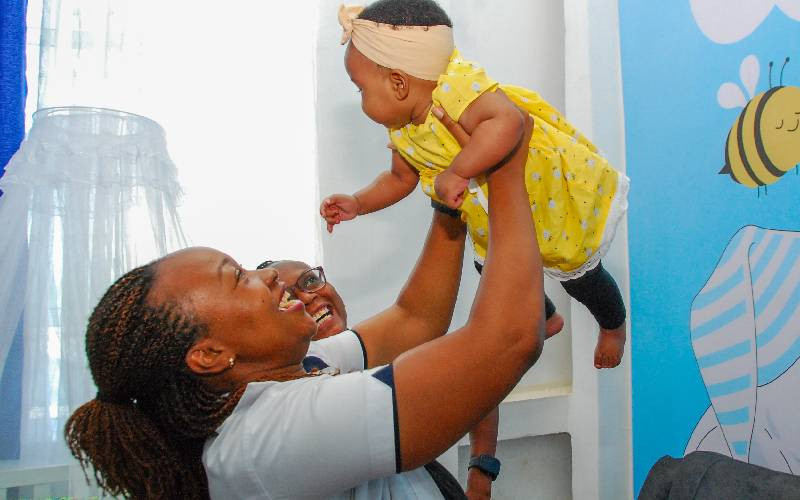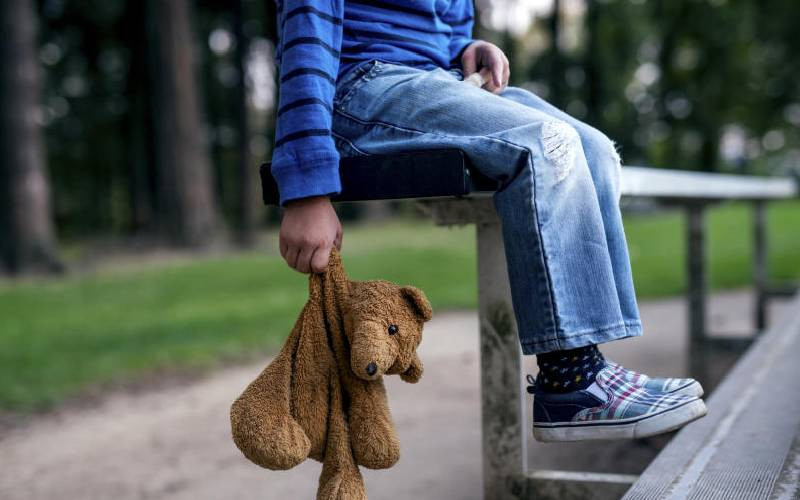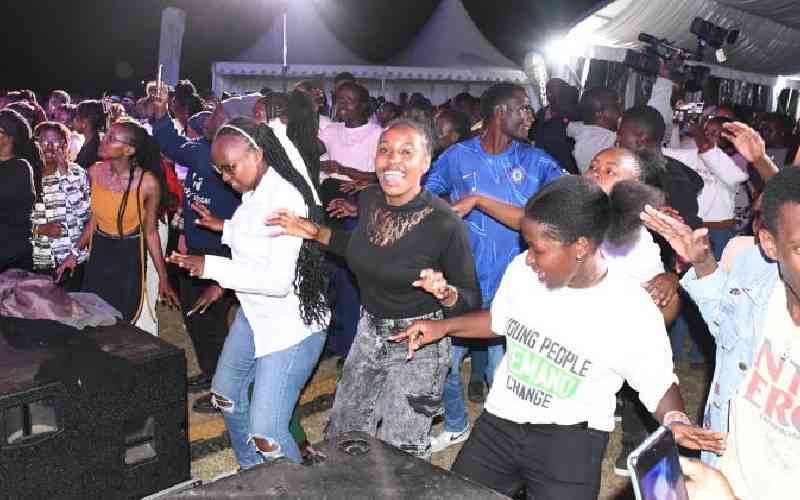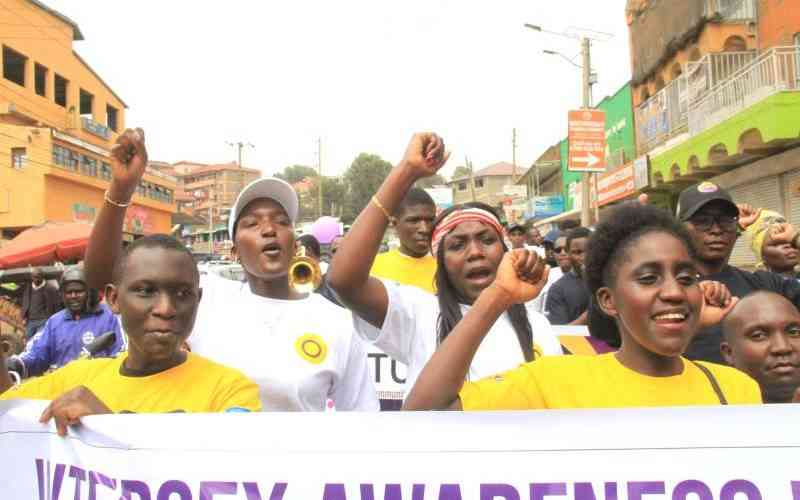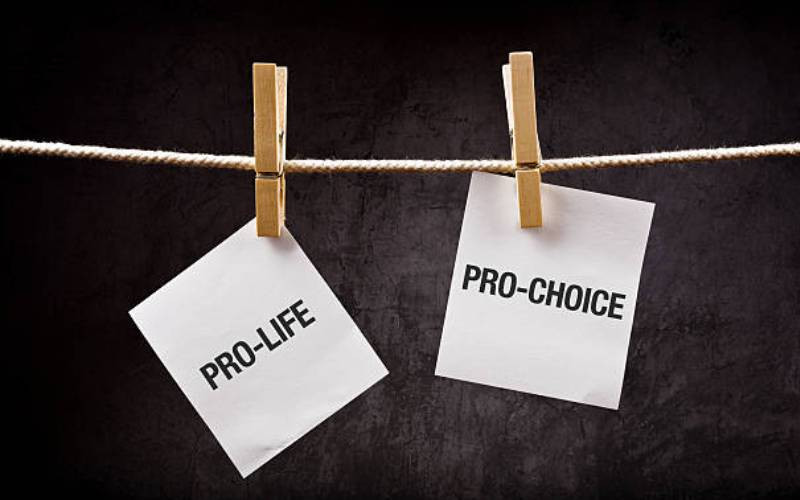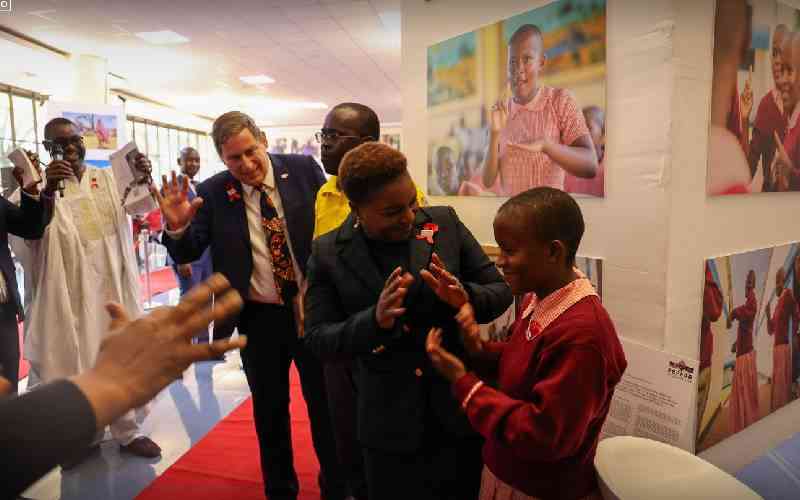
The U.S President's Emergency Plan for AIDS Relief-PEPFAR now says the introduction of Comprehensive Sexuality Education in Kenyan schools will play a vital role in empowering school-going children on how to live healthier lives.
Country Director Brian Rettmann said CSE is critical in helping learners understand key decision-making aspects in their lives like when and how to say no.
Speaking during PEPFAR's 20th-anniversary celebration in Nairobi, Rettmann said Sex education further plays a key role in better health outcomes and lifestyle behaviors.
The debate on the introduction of sex education in school has in the recent past generated controversy among Kenyans, religious leaders and health experts, who carry different opinions.
A number of religious leaders have strongly opposed its introduction, saying it would cause more harm.
Led by the Presiding Bishop of Christ is the Answer Ministries Bishop Oginde, some of the clergy argue that unlike traditional sex education, CSE is highly explicit.
"With an almost obsessive focus on children obtaining sexual pleasure, CSE promotes promiscuity and high-risk sexual behaviors as healthy and normal," Oginde wrote in one of his opinion articles.
- HIV gains at risk as donors cut lifeline support
- How Pepfar funding cut will hurt Africa
- Health: USAID out, in comes government to government deal
Keep Reading
Oginde said traditional sex education presents children as naturally sexual from birth, therefore any restrictions on their sexual expression or sexual activity violates their sexual rights.
"Furthermore, in CSE, children have the right to experiment with diverse sexual identities and sexual orientations in order to develop a healthy sexuality," he said.
But Rettmann said, "Comprehensive sexuality education is not just about sex, it is about life helping individuals to understand their health and how they can maintain their healthiness for the rest of their lives."
He said Pepfar whose mandate is to save lives by preventing HIV infections and accelerating progress toward achieving HIV/AIDS pandemic control is ready to partner with the Kenyan government and other stakeholders in that area.
Across the country, Pepfar supports the government's HIV/Aids programmes and has played a key role in reaching key population groups that are particularly vulnerable to infection such as adolescent girls and young women, as well as helping to strengthen systems for tracking patients to ensure they remain on treatment.
Rettmann said going forward, all development partners must however review and realign the programmes to support activities that go beyond HIV prevention and treatment.
In so doing, Rettmann said Kenya will position itself in a place where it can sustain and finance these programmes without donor dependency.
Civil society groups have maintained their push to compel the government to incorporate CSE in the school curriculum.
Under the umbrella of SRHR Alliance, the more than 17 groups argue comprehensive sexuality education is an age-appropriate, culturally relevant approach that provides scientifically accurate, realistic and non-judgmental information about sexual reproductive health and rights to young people.
"It takes several years to deliver age-appropriate information consistent with the evolving capacities of young people. Comprehensive Sexuality Education goes beyond information thus helping young people to nurture positive values regarding their sexual and reproductive health," the alliance said.
According to the alliance, this education includes discussions about family life, relationships, culture and gender roles, menstrual hygiene management and also addresses human rights, gender equality, sexually transmitted infections (STIs) including HIV and threats such as discrimination, Female Genital Mutilation and sexual abuse.
"CSE supports young people to make responsible and accurately informed decisions about their sexual and reproductive health. It enables young people to protect their health, well-being and dignity. This in turn helps young people to develop self-esteem and life skills that encourage critical thinking, clear communication, responsible decision-making and respectful behavior," read part of statement by the alliance.
 The Standard Group Plc is a multi-media organization with investments in media
platforms spanning newspaper print
operations, television, radio broadcasting, digital and online services. The
Standard Group is recognized as a
leading multi-media house in Kenya with a key influence in matters of national
and international interest.
The Standard Group Plc is a multi-media organization with investments in media
platforms spanning newspaper print
operations, television, radio broadcasting, digital and online services. The
Standard Group is recognized as a
leading multi-media house in Kenya with a key influence in matters of national
and international interest.


